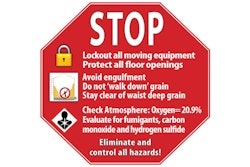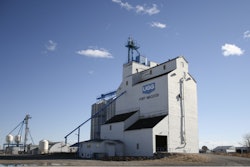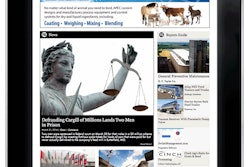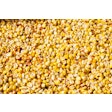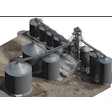In flipping through old issues of Feed & Grain, I ran across a Manager's Notebook from 2007 that, although only six years old, had me nearly laughing at how archaic it sounded. It was about effective communication for feed and grain businesses, and had a section dedicated to email. The authors provided a definition for the term "spam" and suggested using filters to remove such unwanted content. They went on to advise creating folders to help organize and reduce clutter from the remaining messages. It even mentioned the "You've got mail!" reminder that AOL made famous in the 1990s. It's hard to imagine a time when this everyday knowledge was foreign to anyone.
Back then, email was one of the few applications feed and grain business managers used their computers for. Today, those same managers are likely receiving and replying to emails constantly via their smart phones and tablets and use computers for more complex tasks, such as running facility operations, accounting and customer service. A lot sure has changed since "Communicating in the Feed and Grain Business" was published.
However, tucked within this seemingly elementary email tutorial, there were a few nuggets of advice that still resonate today, including the tip to not read and answer emails all day long. Authors, John Foltz and Christine Wilson, wrote:
"For many people, email can almost become an addiction — where they feel a need to constantly check it ... but almost all emails do not need to be answered immediately. A good email management strategy is to set aside particular times each day when you will look at your email and answer it. Perhaps it is to read it three times a day (first thing in the morning, right after lunch, and right before you leave in the evening.)."
This advice is perhaps even more relevent today as we are literally tethered to devices that deliver emails instantly. Urgent messages are easy to identify, and can and should be replied to immediately, but otherwise, try to dedicate your time to managing your facility/business/firm — espeically early in the morning, the authors pointed out.
"Don't answer your email during your most productive time of day. Many people are most productive first thing in the morning, when they are wide awake and ready to face the day. Answering email is not typically a task that takes a lot of creativity, so you might consider leaving it until late in the day. This will free up time when you can be most efficient with things that need sharp mental prowess — such as management, personnel and finance decisions."
Their last tip worth noting is so simple it's easy to forget — use good ettiquette. Again, these may seem basic, but who couldn't use a brush up on their email ettiquette? Foltz and Wilson outlined eight key points:
- "Be concise and to the point
- Answer all questions so as to preempt further questions
- Use proper spelling, grammar and punctuation
- Make it personal
- Don't attach any unneccessary files
- Do not write in CAPITALS (it's considered shouting)
- Read your e-mail before you send it
- Do not overuse 'Reply to All'"
Please feel free to test your application of these e-mail tips by dropping me a message about yourself and your feed and grain operation. I am always looking for reader feedback and story ideas. Do you have any tips for better managing your time?



